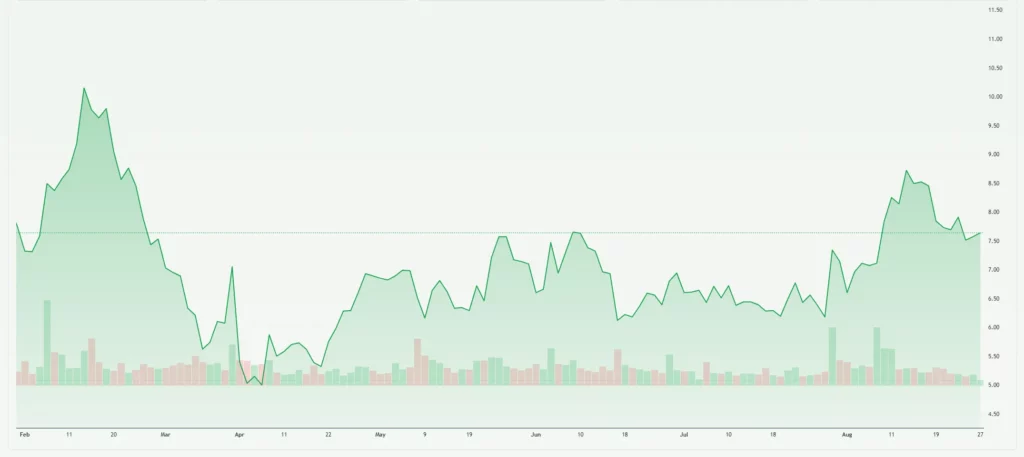Peloton Faces Shareholder Lawsuit Over Post-Pandemic Outlook
Peloton shareholders have secured a significant legal victory in their fraud lawsuit against the fitness equipment company. A federal appeals court ruled that investors can proceed with claims alleging the company misled them about inventory levels during the pandemic downturn. T
The ruling centers on three specific statements that shareholders claim were false and misleading. These statements allegedly inflated Peloton stock prices while the company struggled with excess inventory.
Peloton stock experienced dramatic volatility during the relevant period, falling more than 80% between February 2021 and January 2022. This decline coincided with vaccine availability and gym reopenings, challenging the company’s pandemic-era business model.
Court Ruling Details
Key Legal Findings
The divided federal appeals court delivered its Wednesday ruling after careful consideration of shareholder claims. Three specific company statements form the basis of the approved fraud allegations. These statements allegedly masked the true extent of Peloton inventory problems during a critical business period.
U.S. District Judge Andrew Carter previously dismissed claims based on six other company statements in August 2024. The appeals court upheld this dismissal while allowing the three key claims to proceed. This selective approach demonstrates the court’s careful evaluation of each alleged misleading statement.
Circuit Judge Jon Newman dissented from the majority opinion. He argued the statements were not misleading and expressed doubt about shareholders’ ability to prove intent to defraud.
Timeline of Events
The legal case revolves around specific dates and company actions that shareholders claim demonstrate fraudulent behavior:
- August 26, 2021: Former CEO John Foley called a $400 bike price cut “absolutely offensive”
- November 5, 2021: Stock plunged 35% after earnings forecast reduction
- February 5, 2021 to January 19, 2022: Stock declined over 80%
- August 2024: Court dismissed six other statement claims

Stock Market Impact Analysis
Price Performance During Crisis
Peloton stock market performance during the lawsuit period reflects broader challenges facing pandemic winners. The company’s shares experienced severe volatility as business conditions changed rapidly. Investors watched their holdings lose substantial value as the fitness equipment market contracted.
The November 5, 2021 single-day decline of 35% particularly damaged investor confidence. This drop followed the company’s announcement of reduced full-year earnings forecasts by up to $1 billion. Management also revealed that 91% of inventory remained unsold at that time.
Market analysts view this period as a cautionary tale for companies experiencing rapid pandemic-driven growth. The subsequent decline demonstrates how quickly market conditions can change for previously high-flying stocks.
Current Business Position
Recent developments suggest Peloton may be stabilizing its operations. On August 7, the company reported a surprise fourth-quarter profit, providing some optimism for investors. However, this positive news came alongside announcement of a 6% workforce reduction.
These mixed signals reflect ongoing challenges in the fitness equipment market. Companies must balance cost reduction with growth initiatives while managing investor expectations.
Shareholder Allegations
Inventory Misrepresentation Claims
Shareholders allege Peloton management deliberately concealed excess inventory levels from investors. The lawsuit claims the company maintained misleading statements about business conditions while struggling with unsold products. These allegations suggest management prioritized stock price maintenance over transparent communication.
The $400 bike price cut controversy exemplifies shareholder concerns. Former CEO John Foley’s public criticism of price reductions allegedly masked the defensive nature of this strategy. Shareholders argue this represented a deliberate attempt to clear three months of accumulated inventory.
Financial Impact on Investors
The stock market decline cost shareholders billions in investment value during the relevant period. Many investors purchased shares based on company statements they now claim were misleading. The lawsuit seeks compensation for losses attributed to allegedly fraudulent communications.
Institutional and individual investors both suffered significant losses during Peloton stock decline. Pension funds, mutual funds, and retail investors all experienced substantial portfolio damage.
Industry Implications
Post-Pandemic Business Challenges
The Peloton case illustrates broader challenges facing pandemic beneficiaries in the stock market. Companies that experienced rapid growth during lockdowns now face normalized demand patterns. This transition requires careful management communication to maintain investor confidence.
Fitness equipment companies particularly struggle with demand normalization as gyms reopen. Home fitness adoption rates have declined from pandemic peaks, creating inventory and pricing pressures.
Corporate Communication Standards
This lawsuit emphasizes the importance of accurate corporate communications during business transitions. Companies must balance optimistic messaging with realistic assessments of market conditions. The stock market punishes perceived deception more severely than acknowledged challenges.
Legal precedents from this case may influence how companies communicate during similar business transitions. Corporate legal and investor relations teams will likely scrutinize public statements more carefully.
Bottom Line
The ongoing legal proceedings create additional uncertainty for Peloton investors. Settlement costs could impact future earnings while legal expenses drain corporate resources. Current shareholders must weigh potential recovery against continued business risks.
Market analysts recommend careful evaluation of companies facing similar legal challenges. The stock market often discounts shares during extended litigation periods, creating both risks and opportunities for investors.
Disclaimer:
This is for informational purposes only and does not constitute financial advice. Always do your research.







